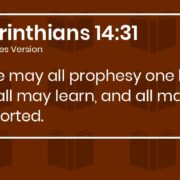Reasons for Establishing a Small Group Ministry
In his article, “10 Reasons Why Your Church Should Have Small Groups”, Daniel Threlfall identifies the importance of small groups. First on his list is that small groups foster close relationships and basic community. A small group atmosphere is good for establishing friendships since individuals tend to talk more in small groups.
The second is that small groups provide a comfortable environment to welcome nonbelievers to the Christian faith.
A natural and understandable fear common among us is fear in forming relationships, especially if it involves sharing our faith and beliefs with other people.
However, inviting someone to a small group meeting provides a way to involve a nonbeliever in the church. A nonbeliever is more likely to ask questions, get answers, and form relationships with a small group of believers. Thus, small groups can be a powerful missional tool, allowing for the greater spread of the gospel among nonbelievers in the community.
Third, small groups provide a good way to care for the needs of people within the church.
When a small group member is struggling, it is much easier for the other group members to notice. They can already provide assistance. The structure of a small group is essentially a community of friends of the same faith. As a result, friends are meant to help one another, especially if they are friends in Christ.
Fourth, small groups allow Christians to live out their faith instead of becoming churchgoers and mere Gospel listeners.
Since members discuss the Sunday preaching, talk about their personal and spiritual battles, and/or pray for one another during meetings, small groups provide a setting for Christians to live out their faith.
Fifth on Threlfall’s list is that small groups provide focused prayer for one another.
Threlfall noted that in a small group meeting, each of the present people took a few minutes to tell others about their particular challenges or concerns. Then, as soon as one is finished, the person next to him will take some time to pray for him. Small groups are a great place for prayer meetings.
Sixth, small groups offer a comfortable atmosphere for openness.
One admirable thing about small groups is that members often meet in the comfort of their homes, where people can open up, listen, learn, and grow. Threlfall pointed out that this is the same with the first disciples of Jesus who are meeting in houses or being part of a household.
Seventh, small groups allow for mutual edification among believers.
Believers tend to depend upon the leaders for spiritual food and nourishment easily. However, the Scripture states otherwise, for God also gives spiritual gifts to all believers, not just to the preachers and leaders. The whole church benefits from it.
Every Christian should minister to other Christians with their gifts, and this happens most naturally, effectively, and purposefully within small groups.
Eight, small groups encourage better learning.
Listening to a Sunday preaching is a great way to learn the Word, but it is easy to become detached from the message, making us passive listeners. This is not the case within a small group. As a few people gather together, every individual is expected to be involved and to participate. Active involvement is an effective way to learn better.
Ninth, small groups are a source of encouragement and accountability.
It is easy to go in and out of the church and not be noticed. This is common with megachurches, but it also happens in an average-sized church of 100 or 150 attendees.
People come for each Sunday service but do not get themselves involved. These individuals need accountability in their lives, encouragement in their walk with God, and/or help in some way in which small groups can provide.
Lastly, small groups cultivate leadership within the church.
Someone is necessary to lead a small group meeting or at least facilitate the discussion. Thus, there is a need for leaders other than the pastor. Small groups provide opportunities for leadership development among members within the church.
Your weekly dose of prophetic wisdom and anointing awaits you. Join our LIVE Conference Call!
1) Call 515-604-9266
2) Go to startmeeting.com, and use the login: BishopJordan






















